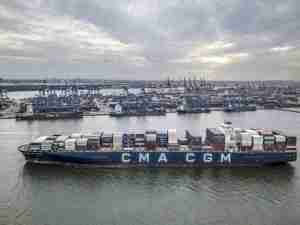For the capesize market, rates are seen falling as Chinese steel producers stay on the sidelines waiting for cheaper iron ore prices, shipbrokers said.
Panamax/Supramax
The Baltic Exchange's rate for shipments from Australia to Japan and South Korea, two major coal importers, rose to $16,027 from $15,609 a day last week as Australia's exports continue to recover after months of floods and cyclones.
Gains could be limited, however, as Japan turns away coal cargoes after last week's massive earthquake destroyed ports and power plants.
Tokyo Electric Power has declared force majeure on some coal vessel deliveries. Possible new destinations for the metallurgical coal included South Korea and China.
"Japan cannot take all of their shipments now after the earthquake, so this will weigh on rates for the short-term," said a Singapore-based shipbroker. "In the longer term, rates should rebound sharply as Japan looks to rebuild."
The Baltic Exchange's rate for panamax vessels travelling via the transpacific route rose to a four-month high of $17,271 from $16,078 a day last week on strong demand for South America grains.
"Freight rates in the Pacific remain firm today with short-period interest in the $17,000-$18,000 region," said broker firm ICAP. "The main demand driver is still coal cargoes out of Indonesia and east coast South America grains."
For the supramax market, rates for shipments from the east coast of India to China eased to a one-month low of $16,050 from $16,950 a day last week on weak Chinese iron ore demand.
Capesize
Benchmark capesize fixture rates from Australia to China fell to $7.582 from $7.754 a tonne last week on weak Chinese iron ore demand.
Top iron ore consumer China has been reluctant to buy on expectations that weaker Japanese demand will improve supplies.
Top Japanese steelmaker Nippon Steel Corp said its 60,000 tonnes-a-month Kamaishi plant remained closed. Sumitomo Metal Industries' Kashima plant, which makes 8.3 million tonnes of crude steel, has also suspended operations.
"Early indications suggest that the market might see iron ore demand decline by roughly 20 million tonnes during the next six months if these (Japanese) mills are shut down," said shipbroker firm Golden Destiny.
China's imports are expected to rise 6 percent, or by 40 million tons, this year from 2010 to support higher steel output, an official from China's mining association said.
Rates for the Brazil-China route slipped to $19.408 from $19.888 a ton last week. (Reuters)








